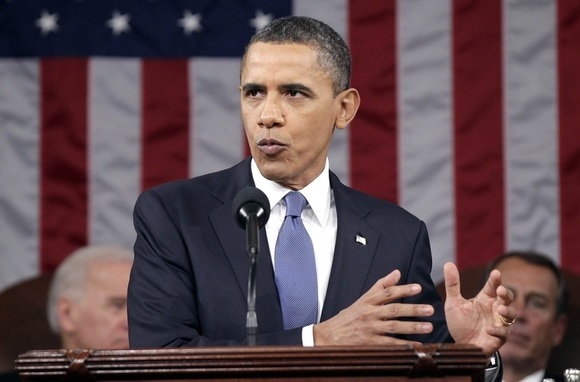President Obama’s new $50 billion infrastructure initiative — part of his $447 billion American Jobs Act (AJA) which he announced during a joint session of Congress on Sept. 8 — offered no surprises.
It’s almost an exact replica of his FY 2012 budget request which included a sum of $50 billion for transportation to “jump start” a proposed $556 billion six-year surface transportation reauthorization.
The rhetoric may have changed — Obama avoided using the terms “stimulus” and “infrastructure” in presenting his AJA initiative to Congress — but the substance of the two initiatives is remarkably similar. Both proposals would fund an identical mix of programs (highways, transit, Amtrak, high-speed rail, aviation and the TIFIA credit program) and both would establish a National Infrastructure Bank.
The FY 2012 transportation budget request failed to obtain congressional approval for two reasons: (1) the administration failed to show how the proposed $50 billion program would be paid for; and (2) there was no convincing evidence that the program would promptly create new jobs.
Contrary to Evidence
Indeed, all evidence pointed in the opposite direction. The $48 billion in American Recovery and Reinvestment Act of 2009 funds for transportation had failed to create the millions of jobs promised by the Administration. The money earmarked for highways had been spent largely on short-term roadway maintenance-type contracts and had produced only temporary jobs. Nor was there much to show in terms of improved conditions or performance of the nation’s transportation system.
As for the National Infrastructure Bank, it is widely believed that at least one or two years could pass before the bank would become operational and in a position to begin financing large-scale job-creating infrastructure projects.
Reason for Skepticism
The same reasons that led Congress to ignore the Administration’s FY 2012 transportation budget request will likely cause the lawmakers to reject the new transportation initiative. They are skeptical that a fresh infusion of funds will succeed where the first stimulus failed. Doing the same thing over and over again and expecting different results may not be exactly insanity but it does suggest a certain unwillingness to face up to reality.
The president said “everything in this bill will be paid for” and he will call on the Joint Deficit Committee to come up with additional deficit reductions to pay for the American Jobs Act. But by proposing to end tax breaks for people making more than $200,000, and for oil and gas companies, the White House is setting itself up again for a fight with Republicans who already have rejected this approach to “revenue enhancement.”
It remains to be seen if the independent congressional committee will do Obama’s bidding. With the president’s approval ratings at an all time low, they just might be emboldened to ignore his plea.
C. Kenneth Orski ([email protected]) is editor and publisher of the Innovation Briefs transportation newsletter.



